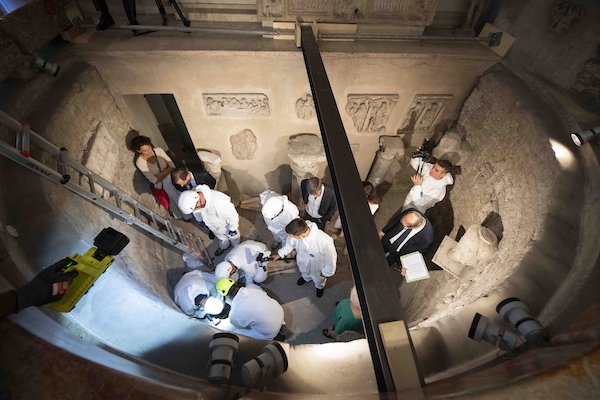
By Elise Ann Allen
ROME (Crux) — Nearly 40 years after the disappearance of 15-year-old Italian girl Emanuela Orlandi, the Vatican’s tribunal has reopened the case, which received a fresh wave of attention after being featured in a Netflix documentary last year.
Vatican spokesman Matteo Bruni confirmed the news to Crux, saying the Vatican’s Promoter of Justice, Alessandro Diddi, “has opened a file in response to requests made by the family in various settings.”
The news was first reported by Italian agency Adnkronos, which stated that Diddi and the Vatican Gendarmes intend to re-examine all files, documents, reports, and testimonies that have come in over the past 40 years in hopes of clarifying lingering questions and putting a definitive end to the speculation that has surrounded the case almost from the beginning.
Work will begin with information gathered during the official proceedings and will follow new leads and re-examine ones that lacked necessary details at the time they came in, going over every detail on file from the afternoon of June 22, 1983, when Orlandi disappeared, until today.
By far Italy’s most famous cold case, the Orlandi disappearance has long been a source of keen public and media interest and has been a near-constant source of conspiracy theories.
Orlandi, who lived in Vatican City State and whose father was a Vatican functionary, disappeared on her way home from a music lesson in 1983. Speculation over what happened has ranged from suggestions that she was kidnapped in a bid to secure the release of Mehmet Ali Ağca, Pope John Paul II’s would-be assassin; that she was abducted by the KGB to pressure John Paul II over his support for Solidarity in Poland; that she was taken by the Italian mob to secure reimbursement for losses in Vatican bank scandals; and that she became a victim of a ring of Vatican pedophiles.
With her brother Pietro leading the charge for answers some 40 years later, Orlandi’s case is is still a source of keen interest, most recently as the subject of a four-part Netflix documentary titled “Vatican Girl,” which introduces the story and documents the various theories that have been tested without leading anywhere.
In the documentary and throughout the four decades that have elapsed since Orlandi disappeared, the allegation has repeatedly been made, mostly by the Orlandi family, that the Vatican knows more than it is letting on, and it has received constant pressure to turn over its files.
As it turns out, the president of the Vatican tribunal, former magistrate and top prosecutor Giuseppe Pignatone, has ties to the Orlandi case.
Prior to his appointment as head of the Vatican tribunal in 2019, Pignatone had served from 2012 until his retirement in 2017 as chief prosecutor of Rome, meaning he took over the investigation into Orlandi’s disappearance before archiving shortly after.
For the past year, Pietro Orlandi and the family’s lawyer, Laura Sgrò, have been pushing for a formal inquest to be opened into what and how much the Vatican knows.
Just last month, opposition lawmakers in Italy pushed for the opening of a parliamentary commission of inquiry into three cold cases that have captivated Italy for decades, including the Orlandi disappearance.
Italian Senator Carlo Calenda at the time said the aim of the inquest would be to pressure the Vatican to finally hand over everything it knows about the case to Italian authorities, arguing that the Vatican’s consistent claim of ignorance was “hardly credible.”
“We are a great secular nation that treats the Vatican with respect, but this case certainly cannot be considered closed in this way,” Calenda said at a press conference announcing the proposal for the commission.
The proposal has been submitted to the lower Chamber of Deputies in the Italian parliament for an initial review, and it must now be voted on at the committee level.
With the proposal, the hope of Orlandi’s family is that a final commission report would provide enough evidence and political and institutional support to formally reopen Orlandi’s archived case with the Rome prosecutor’s office.
In the early days of the investigation, Italian prosecutors made three requests for the Vatican to turn over its files, but without much success.
Over the past 40 years, there have been four proposals to open a parliamentary commission of inquiry examining the Orlandi case, none of which were successful.
Despite the family’s repeated insistence that the Vatican is blocking efforts to uncover the truth, Pope Francis in 2019 authorized a request from the Orlandi family to open a tomb in Vatican City’s Teutonic cemetery to follow up on a tip suggesting Emanela’s remains were buried there, however, the excavation went nowhere.
